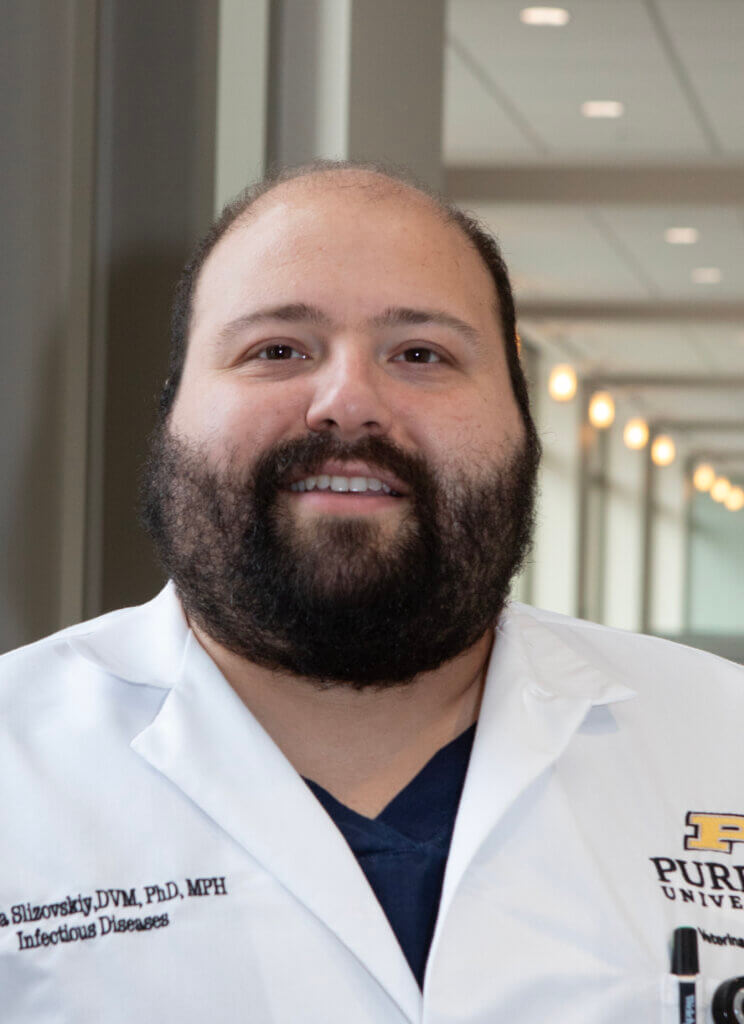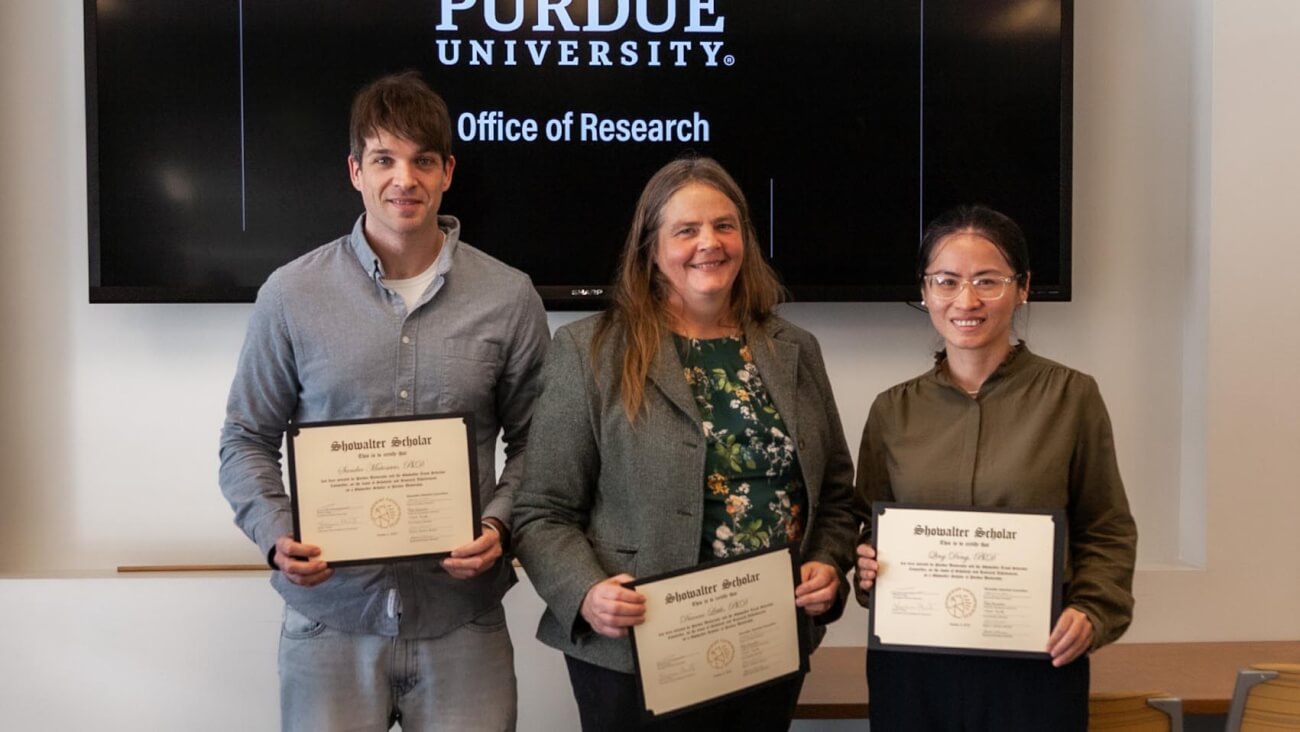Dr. Dianne Little, associate professor of basic medical sciences, is one of four Purdue University faculty members newly named as Showalter Faculty Scholar recipients. These appointments bring the number of currently funded Showalter scholars on Purdue’s West Lafayette campus to 15. The Showalter Trust also provided 13 early career faculty members with 2025 research grants, including a member of the Veterinary Clinical Sciences Department Faculty.
The Ralph W. and Grace M. Showalter Research Trust annually provides funding to Purdue in support of scientific and medical research related to human health. Dr. Little focuses on tendon tissue engineering, which has been continuously funded by the National Institutes of Health. She developed an interest in translational orthopedics, preclinical models, and understanding how extrinsic life and lifestyle factors impact osteoarthritis. She continues to build up her tendon tissue engineering work to expand understanding of the impact of extrinsic factors on the vast potential for stem cells in regenerative medicine, and to shed light on how some of these extrinsic factors impact osteoarthritis and the overall whole organism disease burden. In particular, she has received funding from the Department of Defense for her work on extrinsic life and lifestyle factors relevant to knee osteoarthritis in the military.
2025 Showalter Early Career Awards
The Ralph W. and Grace M. Showalter Research Trust has supported Purdue researchers in priority research areas of environmental science; biochemistry and molecular biology; disease prevention, diagnosis, progression, treatment and control; new technologies for food production, preservation, distribution and safety; and medical and biophysical instrumentation, including the analysis of large datasets.

Grants for early career faculty members are the centerpiece of Showalter funding at Purdue. This year, 13 faculty members each received funding for specific projects. Dr. Ilya Slizovskiy, assistant professor of veterinary clinical sciences, was awarded funding for “Quantifying the impact of fecal microbiota transplantation on antimicrobial resistance burden in high-risk patients with multidrug-resistant infections.”
In addition to selecting midcareer professionals as Showalter Faculty Scholars, in partnership with the University Faculty Scholars program and providing one-year funding for early career professionals, the trust also supports two Showalter Distinguished Professors at Purdue, Charles Bouman and Kinam Park. The funded projects were chosen by the external Showalter Trust Selection Committee after review by an internal Purdue committee.
Click here for more information about this year’s recipients.

